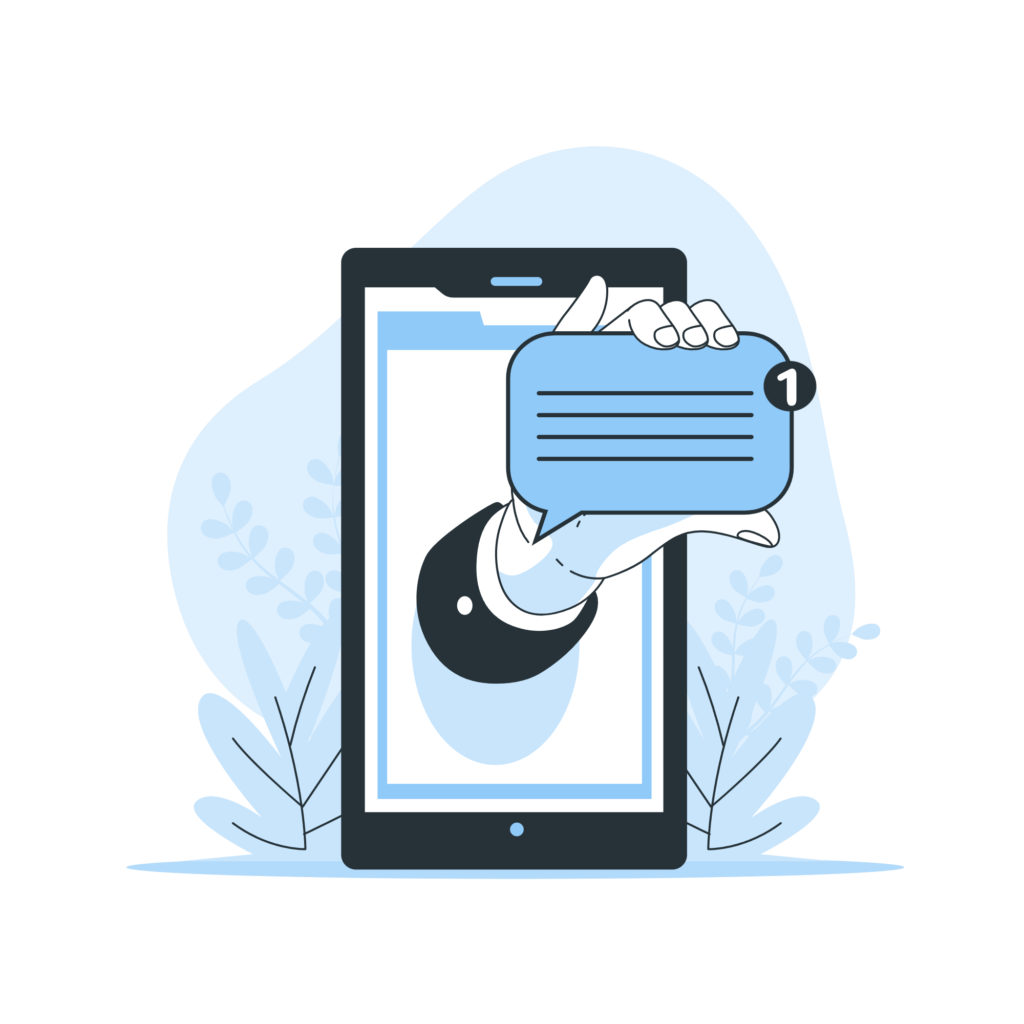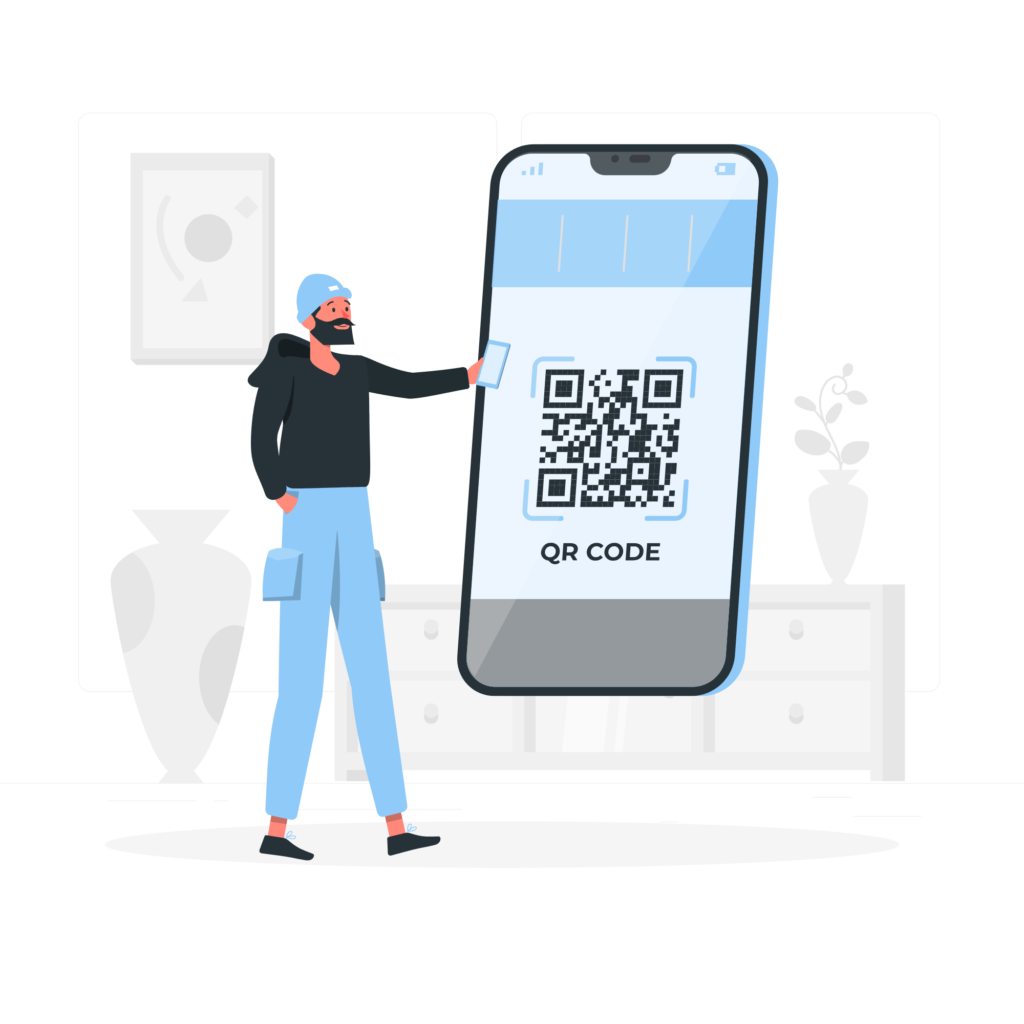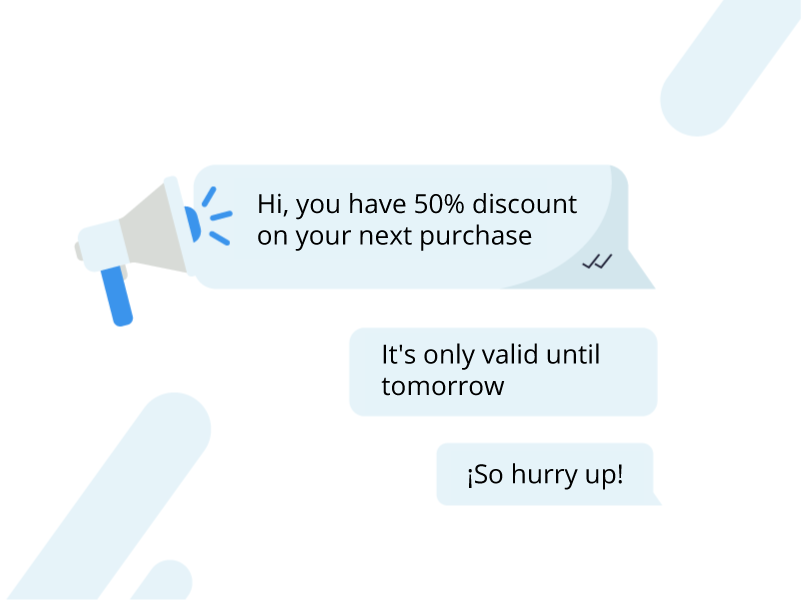Businesses are constantly looking for innovative and effective ways to connect with their audience and promote their products or services. In this sense, WhatsApp has emerged as a powerful tool in the world of marketing, allowing companies to establish direct and personalized communication with their customers in a closer way than ever.
In this article, we will explain how to harness the power of WhatsApp Marketing and how to avoid common mistakes that can negatively affect your WhatsApp. From the proper use of text messages to audience segmentation strategies, we will review different practical and effective tips to optimize campaigns and achieve solid results.
The importance of a WhatsApp Marketing strategy
To better illustrate the importance of marketing through WhatsApp, let’s review what its main benefits are:
- Wide Reach and Popularity: WhatsApp is one of the most widely used messaging apps in the world, with millions of daily active users. Therefore, incorporating WhatsApp Marketing allows you to reach a wide audience, increasing the chances of reaching potential customers and promoting the company’s brand.
- Direct and personalized communication: Allows you to establish direct and personalized two-way communication with users. This provides the opportunity to interact more closely with customers, respond to their questions or concerns quickly, and provide more efficient customer service.
- Higher open and response rate: Compared to other communication channels, such as email or social networks, messages sent through WhatsApp usually have a higher open and response rate. Users tend to check and reply to WhatsApp messages faster and more frequently, increasing the chances of capturing their attention and generating desired actions.
- Personalization and segmentation: As for user segmentation for WhatsApp Marketing, there are several tools available that can help achieve this. One of them is Uniboxi, a marketing and automation platform designed specifically for the use of WhatsApp as a business communication channel.
- Solid relationships based on trust: This tool is perceived as a more personal and trustworthy channel compared to other means of communication. By using WhatsApp to engage with customers, businesses can build strong relationships based on trust and closeness, which can have a positive impact on customer loyalty and satisfaction.
- Low cost and high return on investment: Compared to other marketing channels, it can be a cheaper and more profitable option. Sending messages through WhatsApp generally involves minimal costs and can generate a high return on investment if used effectively.

How to create a WhatsApp Marketing strategy
Creating a marketing strategy for WhatsApp requires planning and effective execution. Like any strategy, your planning should be done step by step:
Step 1: Definition of objectives
That is, what you want to achieve with the WhatsApp Marketing strategy. Increase sales, promote a new product, improve customer service or strengthen the relationship with current customers? Establishing specific objectives will allow you to focus your efforts and subsequently measure the success of the strategy.
Step 2: Know the audience
It refers to understanding the target audience and their preferences. Who are the ideal clients? What kind of content are they interested in? What is your behavior online? The idea is to obtain demographic and psychographic information about the audience to personalize the messages and make them more relevant.
Step 3: Build a contact list
Every business has its methods, but most do it by collecting phone numbers through registration forms on their website, events, social media, or other interactions. Ideally, you should obtain explicit consent from users before sending them messages.
Step 4: Offer valuable content
Relevant and valuable content through WhatsApp; product updates, exclusive offers, useful tips, multimedia content, event reminders, among others.
Step 5: Personalize messages
Use segmentation from the contact database (Step 3) to send personalized messages. In this way, it is possible to tailor messages based on location, interests, purchase history, or other relevant criteria. Personalization helps build a stronger connection with customers and increases the effectiveness of messages.
Step 6: Two-way communication
This means encouraging customer interaction and participation by encouraging them to respond to messages, ask questions, or provide feedback. Of course, this also means responding quickly to your queries. This helps build a stronger relationship and build trust in the brand.
Step 7: Use automation tools
Consider using WhatsApp Marketing automation tools to schedule and send messages more efficiently. Tools like Uniboxi allow you to send messages in bulk, set up automatic responses, set up message sequences, and track user interactions.
Step 8: Measure and adjust
This is about monitoring the results. Analyzing metrics such as message open rate, response rate, number of conversions, and return on investment will allow you to adjust the strategy as necessary to improve results.
Finally, it is important to consider privacy regulations and obtain proper consent from users before sending them messages. Respecting customer privacy and preferences is critical to building lasting relationships.

How to integrate the WhatsApp Marketing strategy with the traditional marketing strategy
Integrating WhatsApp marketing with traditional marketing can help strengthen your overall marketing strategy and expand your reach across different channels. Here we share some ways and ideas to achieve this integration:
Cross promotions
Traditional marketing channels such as TV, radio, print ads, posters, brochures, or billboards can be used to promote your company’s presence on WhatsApp. The WhatsApp number is included in the ads and the benefits of joining the WhatsApp contact list must be highlighted.
WhatsApp QR Codes
Create WhatsApp QR codes and place them on traditional marketing pieces such as posters, flyers, print ads, or product packaging. Users can scan the code with their phones and be redirected directly to the WhatsApp account, making it easy to communicate and interact.
Events and trade shows
During events and trade shows, you can take the opportunity to promote the use of WhatsApp, offering special incentives, discounts or exclusive information to those who register in the WhatsApp contact list during the event.
Integration in advertising campaigns
If you are running advertising campaigns on digital platforms, such as Google Ads or Facebook Ads, you can consider the option of including a WhatsApp “Send message” button in your ads. This will allow users to communicate directly through WhatsApp with just one click.
Follow-up messages
After you’ve done a traditional marketing action, like sending a direct mail or handing out a brochure, you can send follow-up messages via WhatsApp. This may include personalized messages, promotion reminders or additional information that may be relevant to recipients.
Customer service integration
If you use traditional customer service channels, such as phone calls or email, you can also offer customers the option to communicate via WhatsApp to resolve queries or receive assistance. This provides a faster and more convenient customer service experience.
Loyalty programs
Loyalty programs can be created that use WhatsApp as an exclusive communication channel to offer special benefits, rewards or promotions to the most loyal customers. This strengthens the relationship and promotes ongoing interaction.
Share viral content
You have to take advantage of the viral potential of WhatsApp to share interesting and attractive content. Creating viral campaigns that encourage people to share content in their WhatsApp groups can generate massive reach and increase brand visibility.
Links to WhatsApp in emails
It is about including WhatsApp links or buttons in marketing emails. This will allow recipients to click directly to contact the business via WhatsApp instead of having to reply to email.
Integration in social networks: It consists of promoting the presence in WhatsApp through the profiles of social networks. Similarly, share posts or stories that invite followers to communicate via WhatsApp for exclusive content, special offers, or personalized attention.

What are the main mistakes and how to avoid them
When implementing a WhatsApp Marketing strategy, it is important to be aware of the possible mistakes that can be made and take steps to avoid them.
Some of the main errors are the following:
Excessive messaging
Excessive messaging can lead to users feeling overwhelmed and perceiving communications as spam.
How to avoid it: Set a suitable frequency of sending messages and avoid flooding contacts with too many notifications. Be selective and send relevant and valuable messages to keep the interest of your users.
Not segmenting properly
Not segmenting messages and sending them to the entire contact list can lead users to receive irrelevant or uninteresting information for them.
How to avoid it: It is important to segment your contact list based on criteria such as interests, geographic location or purchase history. This will allow you to send more personalized messages adapted to the needs of each segment.
Lack of consent and privacy
Sending messages to people who have not given their consent or have not opted in to receive marketing communications can have negative consequences.
How to avoid it: Make sure you get explicit consent from users before adding them to WhatsApp contact list. Respect their privacy and offer clear options so they can opt out of receiving further messages if they wish.
Generic or irrelevant messages
Sending generic and irrelevant messages can result in a low response rate and lack of interest from users.
How to avoid it: Personalize messages as much as possible, taking into account the interests and preferences of each segment of the audience. Provide valuable and useful content that really resonates with users.
Not responding to queries or comments
Ignoring user queries or comments can damage the reputation of the business and lead to dissatisfaction.
How to avoid it: Respond in a timely and professional manner to all inquiries and comments received via WhatsApp. T
This shows that interaction with customers and their experience throughout the process is valued.
Not measuring or analyzing results: Not monitoring and analyzing the results of the WhatsApp Marketing strategy is a common mistake.
How to avoid it: Monitor relevant metrics, such as open rate, response rate, and conversions, to assess campaign performance. This will make it possible to identify areas for improvement and make necessary adjustments to the strategy.
Not being aware of policies and regulations
Failure to comply with WhatsApp policies or privacy regulations can have legal consequences and damage a company’s reputation.
How to avoid it: Know WhatsApp’s usage policies and local regulations related to marketing and user data privacy.
In summary, marketing via WhatsApp has become an effective strategy to establish direct and personalized communication with customers. By taking advantage of WhatsApp features such as personalized messaging, automation, and customer support, businesses can strengthen their audience relationships and boost their reach.
Additionally, integrating WhatsApp into traditional marketing strategy, through cross-promotion, channel mix, and customer service, enables a consistent brand experience and improves customer engagement. Additionally, by monitoring and analyzing key metrics, businesses can tailor and optimize their approach, ensuring they get the best results from their WhatsApp marketing efforts. In short, marketing via WhatsApp provides significant opportunities to connect with the audience effectively and foster business growth.

